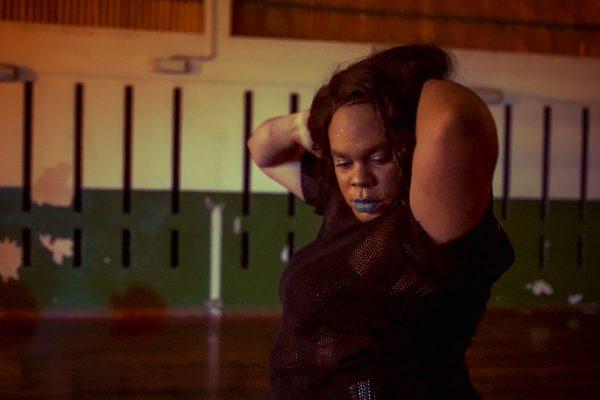The first in a double bill focusing on black history at this year’s SQIFF, Fabulous documents a brief period in the life of Lasseindra Ninja. The vogueing star has spent many years in the New York ballroom scene, as well as spreading her artform in the clubs of Paris. For Fabulous, though, she returns to her native French Guiana to teach a new troupe of amateur dancers how to unleash their skills.
The film is tied to key scenes in a dance studio, where Ninja showcases her slick moves as well as her strict attitude. Here, she instructs young students how to emulate her vogueing style, before encouraging them to experiment and find their own grooves, which in turn allows them to feel freer and more confident beyond the dancefloor. The film becomes as much as about gender norms as it is about dancing. Ninja explains that the art of vogueing lies in exaggerated femininity, and is therefore difficult for many men who are afraid or insecure about their own gender expressions. She portrays complete ease when performing, though, relishing her position in this underground scene.
Although there are intermittent to-camera interviews, most of the film feels very casual and observational. Ninja is captured during dance lessons, watching videos online, walking through urban environments, and visiting family members for costume fittings, often seeming to forget she’s even being filmed. Considering she is known for her on-stage glamour and extravagance, Fabulous is surprisingly low-key and almost reserved in its documentation. There is down-to-earth humour too. It doesn’t deal in sympathy-seeking or the reinforcement of the oppressed LGBTQ life (although we do feel there is still a shield around Ninja that we don’t quite penetrate). Instead, the purpose is to highlight the performer’s influence, particularly on a younger generation.
Fabulous is entertaining enough and Ninja is a magnetic character, but it could explore either her or the ballroom world or the conservatism of French Guianese culture even more – the latter is touched on but feels like fertile ground that isn’t fully harvested. However, it does provide an interesting look at a subculture that has been gaining more mainstream attention in recent years thanks to popular TV shows like RuPaul’s Drag Race and Pose. And for fans of those, this would be worth the fairly brief viewing time.
